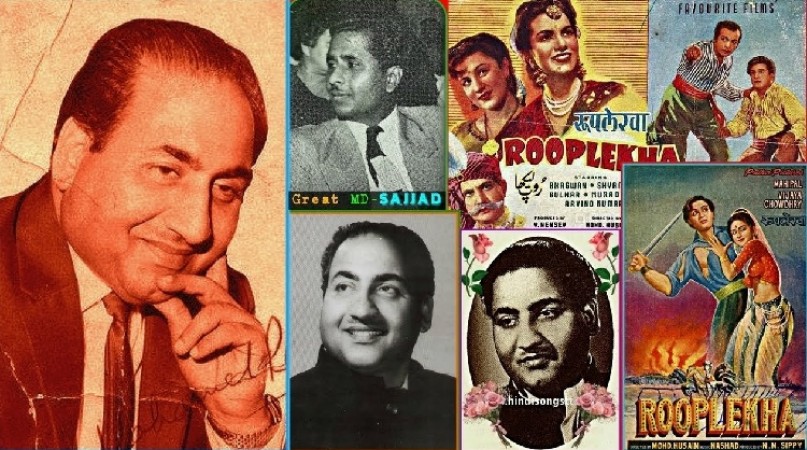
On this day, July 19th, we commemorate the death anniversary of Sajjad Hussain, one of the most innovative and unique music directors in the history of Hindi cinema. His contributions to the world of music continue to resonate with audiences even after his passing. Sajjad Hussain's ability to infuse emotions into melodies remains unparalleled, leaving an indelible mark on the Indian film industry.
Born on June 15th, 1917, in Sitapur, Uttar Pradesh, Sajjad Hussain displayed a profound inclination towards music from an early age. He received his initial training in classical music from Ustad Faiyaz Khan and later honed his skills under the guidance of Ustad Allauddin Khan. Sajjad Hussain's commitment to mastering his craft and his relentless pursuit of excellence set him apart from his contemporaries.
Sajjad Hussain's musical journey began in the 1940s when he composed the score for the film "Khandan" (1942). His soulful compositions struck a chord with listeners and introduced a new dimension to film music. Sajjad Hussain was known for his ability to seamlessly blend traditional Indian classical music with Western influences, creating a unique and melodious fusion. His compositions had a distinctive charm that touched the hearts of millions.
One of Sajjad Hussain's most notable collaborations was with filmmaker Guru Dutt. Their partnership yielded remarkable results, with films like "Baazi" (1951) and "Pyaasa" (1957) featuring iconic musical scores. The song "Yeh Duniya Agar Mil Bhi Jaaye" from "Pyaasa" remains a timeless classic, capturing the essence of Sajjad Hussain's musical genius. His compositions not only enhanced the narratives of the films but also conveyed a profound depth of emotion.
What set Sajjad Hussain apart was his innovative approach to music arrangement and orchestration. He experimented with a wide range of instruments, incorporating unconventional sounds and harmonies. His compositions were often characterized by intricate melodies, layered arrangements, and a meticulous attention to detail. Sajjad Hussain's penchant for perfection made him a revered figure among his peers and continues to inspire musicians to this day.
In addition to his film work, Sajjad Hussain also composed several non-film albums and ghazals, further showcasing his versatility and creative prowess. His album "Aye Mohabbat Tere Anjaam Pe Rona Aaya" became immensely popular and solidified his position as a maestro of music.
Tragically, on July 19th, 1995, Sajjad Hussain left this world, leaving behind a legacy that remains etched in the annals of Hindi cinema. His compositions continue to resonate with audiences, evoking a wide range of emotions. Sajjad Hussain's ability to create timeless melodies has stood the test of time, making him an enduring icon in the realm of Indian music.
As we fremember Sajjad Hussain's death anniversary, let us remember and celebrate his immense contributions to the world of music. His innovative spirit, unmatched creativity, and soul-stirring compositions have left an indelible imprint on Hindi cinema, and his musical legacy will continue to inspire generations to come.
Mangal Pandey Birth Anniversary: Brave Soldier Who Ignited India's First War of Independence
Celebrating the Birthday of Roger Binny: A Cricket Legend and the President of the BCCI